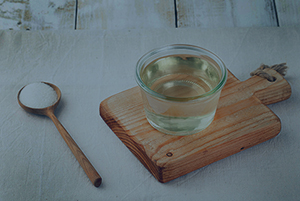What to Know About Sugar Alcohols — Sorbitol, Erythritol and Maltitol
Health-conscious consumers, or those with diabetes, are well-versed in reading food labels to gather information on the amount of carbohydrates, sugars, fats and other ingredients in the foods they buy. With many people looking to lower the amount of pure sugar in their diets, manufacturers have added sugar alcohols to impart the sweetness – without the added carbohydrates.
What is Sugar Alcohol?
Sugar alcohols are neither sugar nor alcohol. Instead, they are a type of carbohydrate and have a chemical structure that is similar to sugar. Three common types of sugar alcohols are sorbitol, erythritol and maltitol.

Understanding Sorbitol
Sorbitol is a water-soluble compound that occurs naturally in many fruits and vegetables like blackberries, raspberries and strawberries, apples, apricots, avocados, cherries, peaches and plums via photosynthesis. Sweetener Products also offers commercially produced sorbitol from glucose that provide sweetness, texture and moisture retention in packaged foods such as baked goods, chocolates, frozen desserts, hard candies, sugar-free chewing gum, snack bars and beverages.
The benefit of sorbitol, like most sugar alcohols, is that sorbitol is about 60 percent as sweet as sugar and has about 35 percent fewer calories per gram (2.6 calories for sorbitol compared to 4 calories for sugar).
What to Know About Erythritol
Like sorbitol and other sugar alcohols, erythritol is a sugar substitute used in a variety of processed foods such as candy, gum, chocolate, beverages, yogurt, fillings, jellies, bars, and jams. Additionally, home bakers can purchase the sweetener in granulated and powdered form.
The sugar alcohol, also known as polyol, can be found grapes, pears, melons and mushrooms, as well as fermented foods like wine and soy sauce. Commercial versions of erythritol are manufactured from plant starches such as corn. The corn starch is mixed with water, filtered, fermented with a natural culture and dried to create either a crystalized white powder or granules) that looks and tastes like table sugar.
The popularity of erythritol – along with other sugar alcohols – is its low-calorie properties with the least effect on blood sugar. With almost zero calories, zero carbohydrates and a zero glycemic-index score, it is an ideal sweetener for those who wish to follow a low-carb or low-sugar diet.
Unlike table sugar that contains 4 calories per gram, erythritol contains 0.24 calories per gram. It has a minty-sweet or cool taste because it absorbs heat as it dissolves, a process known as endothermic dissolution. This makes it unique compared to sugar, which does not have the same temperature-lowering effect on the tongue. However, erythritol does not dissolve well in liquid like sugar does. For the best taste and texture, products made with erythritol may also be combined with other artificial sweeteners such as sucralose (Splenda).
Benefits of Erythritol
Erythritol acts a bit differently in the body compared to most sugar alcohols. The sweetener tends to cause less intestinal distress compared to over sugar alcohols, and erythritol has no effect on either blood sugar or insulin levels, whereas other sugar alcohols (such as sorbitol) reduce the rise in blood sugar and insulin.
What Is Maltitol?
We all know that low- or zero-calorie sweeteners can help make our favorite sweet treats – and other off-the-shelf foods – taste great without all the calories, carbohydrates and insulin reaction that sugar can add. But not all sugar alcohols react the same in the body. When comparing sugar alcohols such as erythritol and sorbitol that are categorized as sugar free, maltitol has similar properties to sugar and can still impact blood sugar levels. For product manufacturers, however, maltitol offers flexibility and is available in granular, powdered, and liquid forms.
Maltitol vs. Sugar
While most sugar alcohols are no- or low-calorie, maltitol is similar to sugar in that it contains 2 to 3 calories per gram to sugar’s 4 calories per gram. Maltitol syrup weighs in at a glycemic index of 52, which approaches that of table sugar at 60, whereas sorbitol has a zero glycemic index rating. If you are trying to reduce your sugar intake, but still crave the sweetness of sugar, products containing maltitol can help you gradually reach your goal.
Looking for the right sugar alcohol for your products? Whether you’re formulating sugar-free candies, baked goods, or beverages, our expert team can help. Contact us today to explore our full selection of sugar alternatives!
Frequently Asked Questions:
What is the difference between sugar and sugar alcohol?
The main difference between sugar and sugar alcohol is how they are digested and their effects on blood sugar. Sugar (such as sucrose) is a carbohydrate that quickly breaks down into glucose, raising blood sugar levels. Sugar alcohols, however, are only partially absorbed by the body, resulting in fewer calories and a reduced impact on blood sugar. Additionally, sugar alcohols do not contribute to tooth decay like regular sugar, making them a popular ingredient in sugar-free gum and dental products. While sugar provides a sweeter taste, sugar alcohols offer a lower-calorie alternative with varying levels of sweetness and digestive effects.
Does sugar alcohol contain alcohol?
Despite its name, sugar alcohol does not contain ethanol, the type of alcohol found in alcoholic beverages. The term “sugar alcohol” comes from its chemical structure, which is a hybrid between sugar and alcohol molecules. However, sugar alcohols function as carbohydrates and are used as sweeteners, not as intoxicants. They are safe for consumption by all age groups and do not produce any effects associated with drinking alcohol.
Are sugar alcohols safe for daily consumption?
Sugar alcohols are generally recognized as safe (GRAS) by the FDA, but excessive consumption may cause digestive discomfort for some individuals. While erythritol is better tolerated, sorbitol and maltitol can lead to bloating or laxative effects in high amounts. Moderation is key when incorporating them into a diet.
